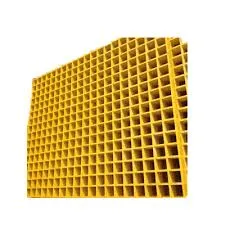
-
 Afrikaans
Afrikaans -
 Albanian
Albanian -
 Amharic
Amharic -
 Arabic
Arabic -
 Armenian
Armenian -
 Azerbaijani
Azerbaijani -
 Basque
Basque -
 Belarusian
Belarusian -
 Bengali
Bengali -
 Bosnian
Bosnian -
 Bulgarian
Bulgarian -
 Catalan
Catalan -
 Cebuano
Cebuano -
 China
China -
 China (Taiwan)
China (Taiwan) -
 Corsican
Corsican -
 Croatian
Croatian -
 Czech
Czech -
 Danish
Danish -
 Dutch
Dutch -
 English
English -
 Esperanto
Esperanto -
 Estonian
Estonian -
 Finnish
Finnish -
 French
French -
 Frisian
Frisian -
 Galician
Galician -
 Georgian
Georgian -
 German
German -
 Greek
Greek -
 Gujarati
Gujarati -
 Haitian Creole
Haitian Creole -
 hausa
hausa -
 hawaiian
hawaiian -
 Hebrew
Hebrew -
 Hindi
Hindi -
 Miao
Miao -
 Hungarian
Hungarian -
 Icelandic
Icelandic -
 igbo
igbo -
 Indonesian
Indonesian -
 irish
irish -
 Italian
Italian -
 Japanese
Japanese -
 Javanese
Javanese -
 Kannada
Kannada -
 kazakh
kazakh -
 Khmer
Khmer -
 Rwandese
Rwandese -
 Korean
Korean -
 Kurdish
Kurdish -
 Kyrgyz
Kyrgyz -
 Lao
Lao -
 Latin
Latin -
 Latvian
Latvian -
 Lithuanian
Lithuanian -
 Luxembourgish
Luxembourgish -
 Macedonian
Macedonian -
 Malgashi
Malgashi -
 Malay
Malay -
 Malayalam
Malayalam -
 Maltese
Maltese -
 Maori
Maori -
 Marathi
Marathi -
 Mongolian
Mongolian -
 Myanmar
Myanmar -
 Nepali
Nepali -
 Norwegian
Norwegian -
 Norwegian
Norwegian -
 Occitan
Occitan -
 Pashto
Pashto -
 Persian
Persian -
 Polish
Polish -
 Portuguese
Portuguese -
 Punjabi
Punjabi -
 Romanian
Romanian -
 Russian
Russian -
 Samoan
Samoan -
 Scottish Gaelic
Scottish Gaelic -
 Serbian
Serbian -
 Sesotho
Sesotho -
 Shona
Shona -
 Sindhi
Sindhi -
 Sinhala
Sinhala -
 Slovak
Slovak -
 Slovenian
Slovenian -
 Somali
Somali -
 Spanish
Spanish -
 Sundanese
Sundanese -
 Swahili
Swahili -
 Swedish
Swedish -
 Tagalog
Tagalog -
 Tajik
Tajik -
 Tamil
Tamil -
 Tatar
Tatar -
 Telugu
Telugu -
 Thai
Thai -
 Turkish
Turkish -
 Turkmen
Turkmen -
 Ukrainian
Ukrainian -
 Urdu
Urdu -
 Uighur
Uighur -
 Uzbek
Uzbek -
 Vietnamese
Vietnamese -
 Welsh
Welsh -
 Bantu
Bantu -
 Yiddish
Yiddish -
 Yoruba
Yoruba -
 Zulu
Zulu
frp ductwork
Understanding FRP Ductwork Benefits and Applications
Fiber-reinforced polymer (FRP) ductwork is becoming an increasingly popular choice in various industries due to its unique properties that offer significant advantages over traditional materials like metal and plastic. FRP ductwork is primarily composed of a polymer matrix reinforced with fibrous materials, which provides an excellent combination of strength, lightweight design, and corrosion resistance.
Understanding FRP Ductwork Benefits and Applications
Another advantage of FRP ductwork is its lightweight nature. This makes installation easier and more economical, as it requires less structural support compared to heavier alternatives. The ease of installation can lead to reduced labor costs and shorter project timelines, making FRP a smart choice for new construction and retrofitting projects alike.
frp ductwork

Additionally, FRP ductwork offers excellent thermal insulation properties. It can help maintain temperature control within HVAC systems, improving energy efficiency and reducing utility costs. This is particularly important in environments that require precise climate control, such as data centers and laboratories.
Furthermore, FRP ductwork is customizable, allowing for a wide range of shapes and sizes to accommodate specific project requirements. This adaptability makes it suitable for various applications, including industrial ventilation, exhaust systems, and even architectural features in commercial buildings.
In conclusion, FRP ductwork stands out as a versatile and practical solution for numerous industries facing challenges with corrosion, weight, and energy efficiency. Its unique properties not only ensure durability and reliability but also provide significant cost savings in the long run. As industries continue to seek innovative materials that align with sustainability goals and efficiency standards, FRP ductwork is well-positioned to lead the way in the evolution of ventilation and ducting solutions. Investing in FRP ductwork means investing in the future of building and industrial infrastructure, setting the stage for enhanced performance and unprecedented longevity.









